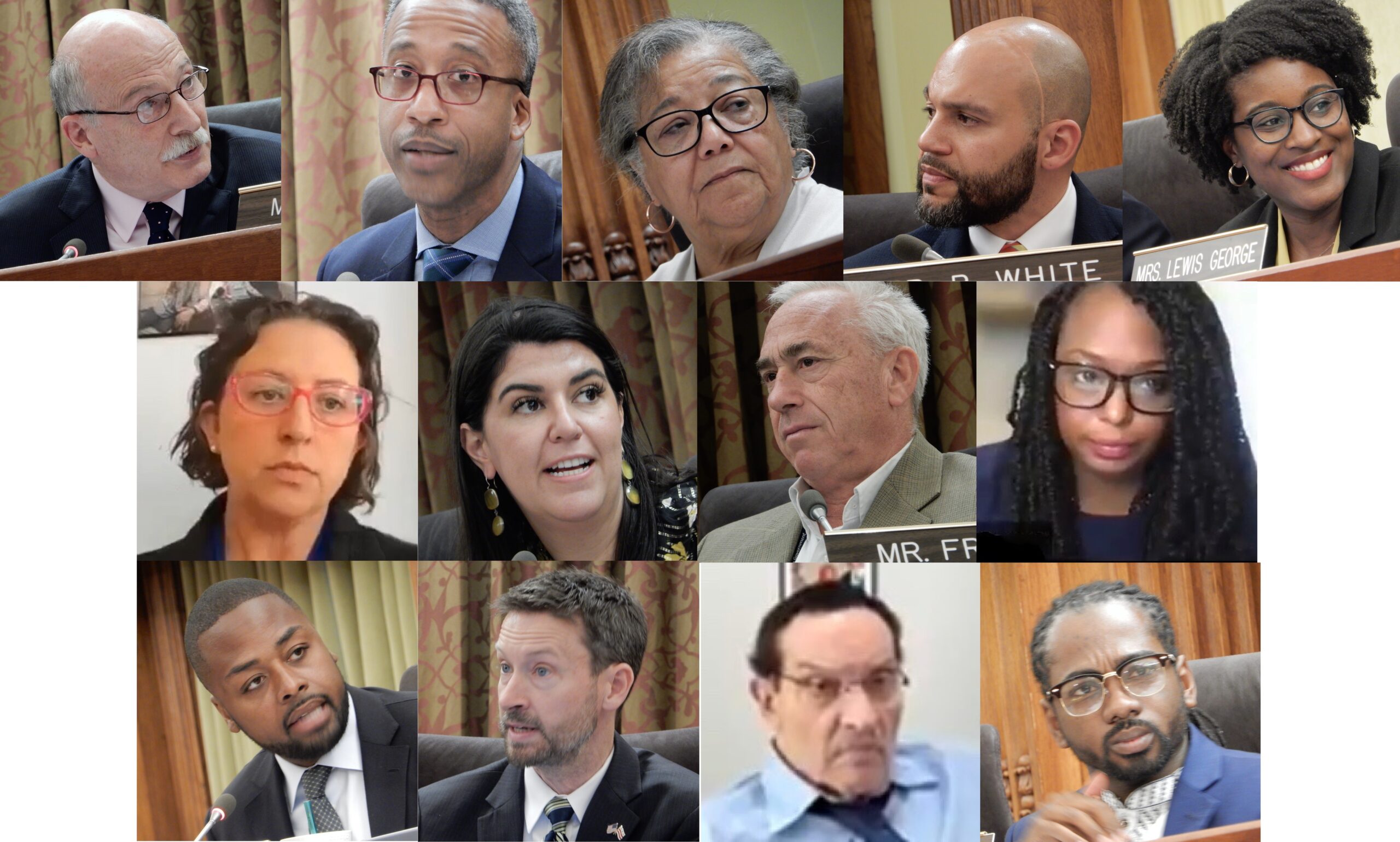Council Concludes Budget Season with Final Vote on Budget Support Act

Although it is apparently apocryphal, a common urban myth says that each year, painters start painting the Golden Gate Bridge at one end, and by the time they have painted their way to the far end, it is time to start over at the near end all over again. Sometimes, this is what the District’s budget process feels like.
The Council’s budget process for the fiscal year beginning on October 1, 2023 got its start all the way back in November of 2022. On that date, the Fiscal Year 2024 Budget Submission Requirements Resolution was introduced, laying out both the timeline and the required contents of the mayor’s budget submission. The deadline for budget submission was March 22, 2023, and on that date, the Home Rule Act-mandated 56-day and 70-day ticking time clocks until the Council’s required passage of the budget were initiated.
There is one asterisk to this tight budget timeline, and it is the approval of the Budget Support Act. While the Local Budget Act contains the dollars and cents of the budget, the Budget Support Act includes the legislative language necessary to put those quantitative figures into effect. Both bills get the first of two required Council votes just prior to the 56-day deadline, but while the Local Budget Act gets a second vote on or just prior to the 70-day deadline, the second vote on the Budget Support Act usually waits a couple of weeks. And with that vote, the budget process wraps up for the year.
Such was the case with the Council’s second vote on the Budget Support Act at its most recent Legislative Meeting. With the “how much” elements of the budget already passed, it was simply a matter of nailing down several final aspects of the actual “how” budgetary changes would be implemented legislatively.
Central to the final conversations about the Budget Support Act were the details behind a key Coumcil-driven effort to revitalize the District’s downtown—the conversion of empty or under-utilized office buildings to residential use. Everyone agrees that such conversions are a critical element of creating a true 24/7 downtown in a post-COVID, work-from-home era, when fewer workers are commuting on a daily basis. At issue in the most recent conversations was the terms of incentives the District would offer, specifically what affordable housing requirements would be attached to the tax abatement incentives, and what exclusions from the District’s Tenant Opportunity to Purchase Act would be offered.
Specifically, the final version of this portion of the bill requires either that 18 percent (up from 15 percent prior to an amendment) of units be affordable to resident earning up to 80 percent of area median income, or that 10 percent are affordable to residents earning up to 60 percent of area median income. The language regarding downtown residential conversion buildings being allowed to be sold once in the ten years following conversion without triggering a guaranteed opportunity for the tenants to first buy the building themselves was unaltered in the most recent meeting.
On another topic that drew attention prior to the meeting, an amendment eliminated a 50 percent maximum cap on the percent of an organization’s budget DC Commission on the Arts and Humanities funds could comprise, if the organization’s total budget falls below $115,000. A capital funds set-aside for larger arts organizations remained in the act as passed.
One additional amendment mandates that any excess funds generated by automated traffic cameras be dedicated to Vision Zero pedestrian and traffic death reduction efforts, instead of going to the general fund.
Prior to adjourning the meeting and bringing the budget season to an end, a list of Council budget successes was read, which is worth citing here:
- Added $27 million in funding for individual schools
- Raised funding for Emergency Rental Assistance Program to $43 million
- Raised funding for Access to Justice programs to $31.6 million
- Added 230 permanent supportive housing vouchers
- Created a dedicated funding stream for Housing Authority maintenance
- Funded or restructured initiatives to fund downtown recovery\
- Restored funding cuts related to victims, especially victims of domestic violence
- Funded 13 bills, including the decriminalization of street vending, domestic workers employment rights, and expanding access to fertility treatment
- Restored funding for opioid treatment that had been eliminated by the mayor
- Helped Childrens’ Hospital
- Provided seed money for the burn center at Washington Hospital Center
- Re-established 24 hour bus service
- Expanded presumptive health care disability benefit for DC Fire and Emergency Medical Services workers
- Restored the baby bonds program, to help build wealth for those born into poverty
- Added $8.5 million to the subsidy for the University of the District of Columbia
- Laid down a marker for increased benefits for the Supplemental Nutrition Assistance Program
In addition to passing the Budget Support Act, the Council also passed an emergency version of the measure. Emergency bills require a two-thirds vote and go into effect immediately, without waiting for Congressional review. They also must not have a fiscal impact, meaning that those elements included in the emergency bill either had no cost or were funded in advance of the emergency bill’s passage. This will allow certain elements of the Budget Support Act to go into effect earlier than upon expiration of the Congressional review period, and/or the October 1 start of the new fiscal year.
The Council’s next Legislative Meetings will be held on June 20 and July 11.